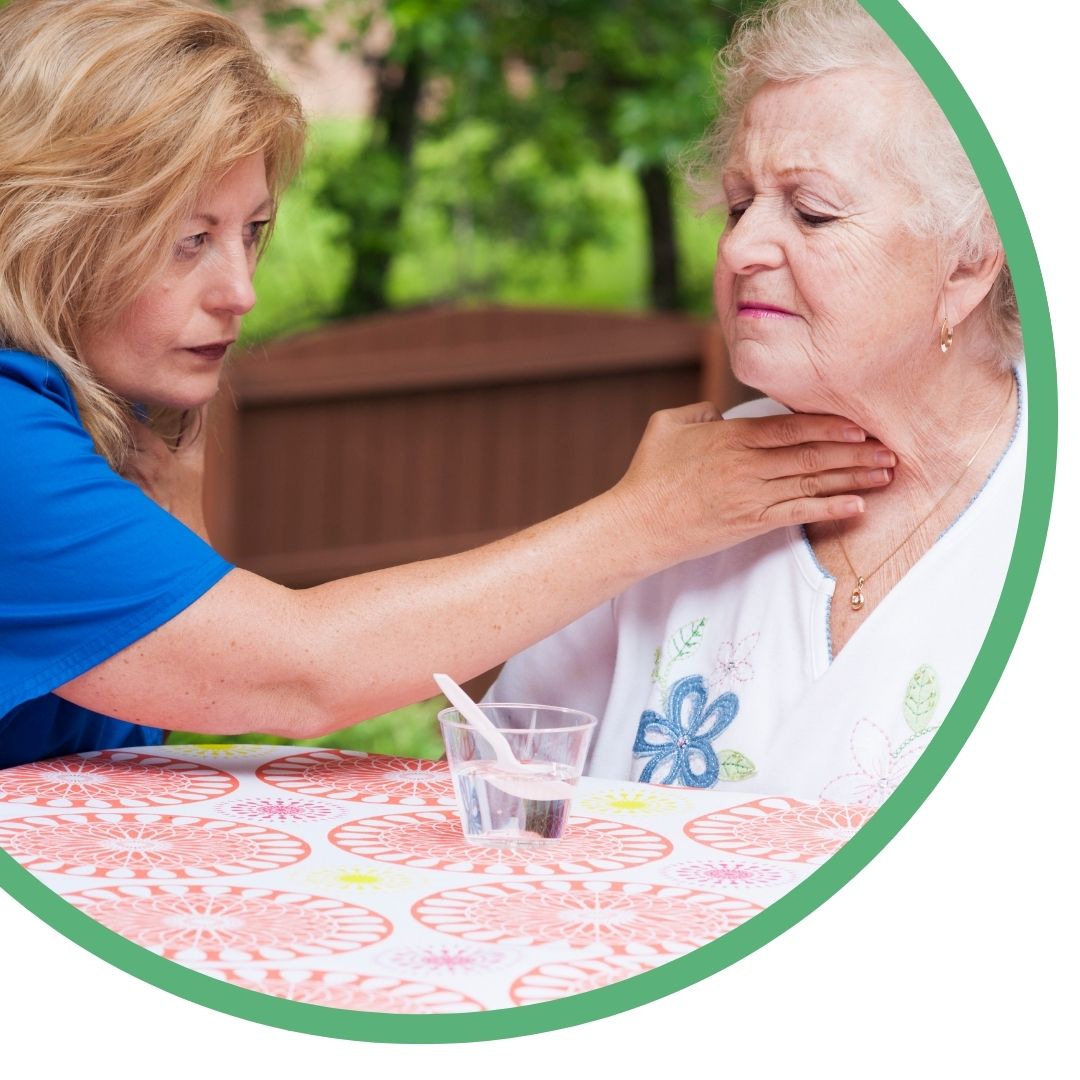Speech Pathology in the NDIS
Tashacare’s speech pathologists support individuals to communicate and sustain safe oral nutrition, improving quality of life and participation in society.
Our speech pathologists are equipped to support individuals from the ages of two upwards with a range of diagnoses. They are specifically trained to support NDIS participants through:
- Speech assessment and intervention
- Language assessment and intervention
- Dysphagia, swallowing, and mealtime assessment and intervention
- Voice/fluency assessment and intervention
- Augmentative and Alternative Communication Assessment, prescription, NDIS application work and training.
They will assess the nature of the problem, provide treatment, advice, and support. They will work closely with the NDIS participant, their family, support staff and other health professionals to provide a comprehensive service.
Paediatric and Adolescent Speech Pathology
Our Speech Pathologists work in collaboration with other stakeholders involved in your child’s care, such as childcare facilities, schools, teachers and other Tashacare or external allied health professionals to ensure that strategies and interventions can be implemented across all relevant settings with a cohesive and holistic approach.
Our experienced clinicians work with children who have a range of conditions:
- Autism Spectrum Disorder (ASD)
- Down Syndrome
- Cerebral Palsy
- Developmental delays
- Stammers
- Attention Deficit Hyperactivity Disorder (ADHD)
- Intellectual disabilities
- Cleft Palate
- Voice disorders
For young children, our speech therapists use play-based therapy to create a fun and exciting therapy approach, all while addressing the child’s or family’s goals, and supporting them to reach their developmental milestones. Toys and games are used in sessions to teach and develop crucial communication and language skills which will set the child up for their future.
Speech pathology for adolescents often focuses on developing functional communication skills, which will enable them to communicate and participate fully in their daily lives and communities by increasing their independence and self-confidence as they transition into young adults.
- Attention and listening skills
- Play skills
- Social interaction skills
- Behaviour
- Receptive language skills
- Expressive language skills
- Speech intelligibility
- Voice quality
- Stammer and dysfluency
- Alternative communication (AAC)
These skills are necessary for learning and are prerequisites for other areas of communication.
Play is the way that children learn about the environment, their bodies, and their place in the world. It is vital for language acquisition and social interaction skills. Play encompasses exploratory, cause and effect, sensory, pretend/imaginary, constructive, interpersonal (play with others) or intrapersonal (solitary play) interactions.
Knowing what to say, how to say it and use of body language in our interactions with others are all important social skills as they allow us to communicate our personal thoughts, ideas, and feelings. However, some individuals may experience difficulties understanding unspoken social conventions (greetings, eye contact, reading/using body language and turn taking in conversation), initiating conversation with others, remaining on topic in conversation or understanding jokes/humour.
Children and adolescents with communication difficulties often get frustrated and angry when they are not understood. They can also have difficulties asking for clarification when they don’t understand something. These difficulties can result in them expressing negative behaviours.
Receptive language is the ability to understand and interpret spoken and written words and sentences. Difficulties in this area may be observed through an inability to follow verbal instructions or appearing to lack interest when storybooks are read to them or when they are spoken to.
Expressive language refers to a person’s ability to express themselves using speaking, writing, gestures, and symbols to convey meaning. Some individuals can present as non-verbal (do not use any spoken language) while others may use verbal language but have difficulties with grammar, limited vocabulary, or written work, for example.
Speech intelligibility refers to the degree a person’s speech can be understood based on their articulation and clarity of sound/word production.
Some people can have difficulties with their vocal quality which can present as a hoarse voice, overly quiet voice, partial/complete loss of voice, scratchy voice, throat clearing/excessive coughing.
A stammer involves difficulty getting words out and can present as issues with repeating part or whole words (e.g. ‘m-m-m-my name is’ / ‘and and and I am’), prolonging words (e.g. ‘mmmmmmmmy’), blocking sounds (when trying to speak but no words come out) or ‘tripping over’ words due to a fast rate of speech.
Alternative communication systems are used to facilitate communication for people with difficulty expressing themselves verbally. This can be achieved without any external aids, for example, through sign language, gesture, and facial expression. Otherwise, external aids can be used, such as low tech options that our speech pathologists can make (e.g. visual schedule, communication book/board, keyring mini cards) or high tech options that fall under the assistive technology category (e.g. iPad apps, Eye Gaze, text to speech/speech to text).
Speech Pathology for Adults and the Elderly
Our speech therapy team, work with adult and elderly individuals who are experiencing difficulties with communication and/or eating, drinking, and swallowing.
Therapy for adults with disabilities often focuses on developing functional communication skills which will enable them to increase their independence, self-confidence, and quality of life, and allow them to participate more fully in their communities. There is a great focus on training and supporting not only the NDIS participant but their formal and informal networks to ensure the client is receiving consistent and ongoing support via a team approach.
Therapy for adults with acute medical conditions, such as stroke and head injuries, focuses on rehabilitation techniques to facilitate the recovery of lost skills and reengagement in daily life.
Therapy for adults with neurodegenerative conditions aims to help manage symptoms and anticipate possible communication or swallowing needs before they arise. The goal is to enable individuals to maintain effective, functional communication and ensure they remain active participants in their daily activities.
Our speech pathologists can work with individuals with a range of conditions that can affect their eating and communication:
- Autism Spectrum Disorder (ASD)
- Down Syndrome
- Cerebral Palsy
- Developmental delays
- Stammer
- Medical conditions such as stroke, head injury, and cancers
- Attention Deficit Hyperactivity Disorder (ADHD)
- Intellectual disabilities
- Voice disorders
- Neurodegenerative conditions such as Parkinson’s Disease, Motor Neurone Disease (MND), Dementia
Augmentative and Alternative Communication (AAC)
At Tashacare, our Speech Pathologists help individuals find their voice through Augmentative and Alternative Communication (AAC). AAC systems are used to support (augmentative) or replace (alternative) spoken language. AAC not only supports nonspeaking individuals to communicate, but also increases independence, enhances social interactions, supports education and learning, improves emotional well-being, reduces behaviours of concern and improves quality of life.
AAC systems are used to support communication for people who may have difficulty expressing themselves with spoken language. This can be achieved with and without external aids. The two main types of AAC aids include:
Unaided AAC: Relies on sign language, gestures, and facial expressions, using no external tools.
Aided AAC: Utilising external tools such as:
- Low-tech: Visual schedules, communication books or boards.
- Mid-tech: switch buttons, Talking briefcases, Go Talk.
- High-tech: iPad apps, text-to-speech software, speech-generating communication devices, eye gaze communication devices, switch access devices.
AAC devices and services can be funded under the NDIS, ensuring individuals receive the necessary tools, opportunities and supports to learn to communicate effectively. At Tashacare, we assist clients in navigating the NDIS process to secure funding, to trial and implement AAC systems.
We begin with a comprehensive assessment to understand each individual’s needs and identify the most suitable AAC system for them. Based on this, we develop an individualised plan and provide support for the individual, their family and their wider support network. We also assist with NDIS documentation to measure progress and secure ongoing support.
Dysphagia, Swallowing Assessments, and Intervention
At Tashacare, our Speech Pathologists support individuals experiencing trouble swallowing and other swallowing disorders, clinically known as dysphagia.
Dysphagia can make eating and drinking unsafe and may increase the risk of choking or aspiration (food or drink entering the airway). Swallowing difficulty can significantly impact health, nutrition, hydration, independence, and overall quality of life.
Speech Pathologists play a critical role in assessing and supporting safe swallowing. In the NDIS community setting, this often looks different from hospital-based care.
Speech Pathologists may:
- Conduct mealtime assessments in the client’s usual environment, considering how food is prepared, presented, and assisted, as well as seating and environmental distractions.
- Gather detailed histories from the person and their support network (e.g., choking incidents, recurrent chest infections, hospitalisations).
- Consider the person’s communication needs and collaborate with other professionals such as OTs, dietitians, and GPs.
- Use a mix of observational data, validated tools, and clinical reasoning to guide safe and practical recommendations.
- Balance the risks and benefits of instrumental assessments (such as VFSS), ensuring decisions reflect the client’s needs, capacity, and quality of life.
- Provide training and education to the person and those involved in their care, to support understanding and implementation of safe swallowing strategies.
At Tashacare, we work collaboratively with clients, families, and support networks to navigate the NDIS process and implement recommendations effectively.
We often begin with a comprehensive swallowing assessment to understand each individual’s needs and identify any safety risks. Our swallowing assessments are conducted in your natural environment to ensure practical, person-centred recommendations. Based on this, we develop a tailored management plan and provide ongoing support, education, and training to the individual, their family, and their broader care team. We also assist with NDIS documentation to monitor progress and ensure continued support.


